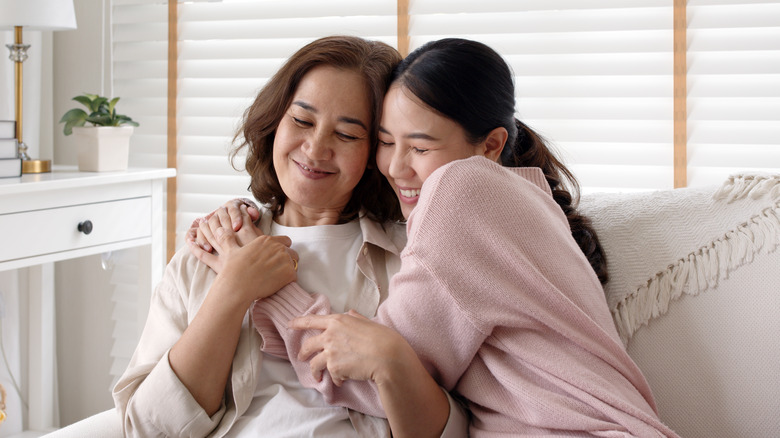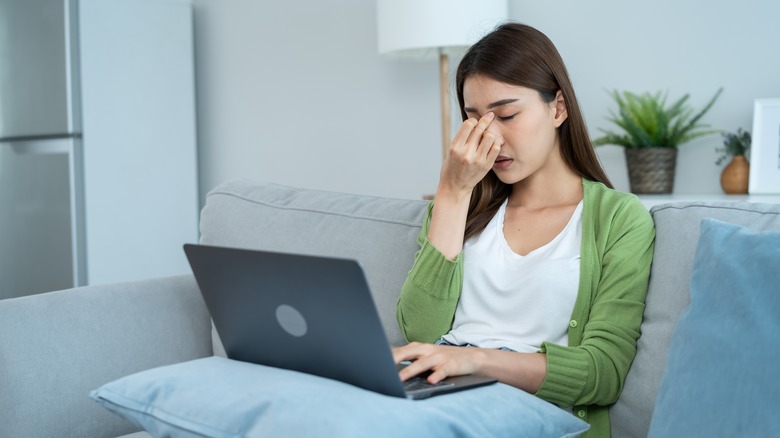New Research Reveals When The Majority Of People Are Likely To Recover From Long COVID
A new study is presenting positive news for people suffering from long COVID. The study, published in the European Respiratory Journal, found that about 75% of people with long COVID will recover after 12 months, regardless of how severe their symptoms were. Long covid refers to people who continue to exhibit health concerns long after testing positive for the virus, even if they now have officially recovered (via American Medical Association). Long COVID lasts more than four weeks. Many people who have experienced long COVID have been concerned that they may never see an end to their symptoms.
While this study is promising, there is still more information needed to determine how COVID can affect people years after infection. This study only involved 106 people, which is a small sample size. It is still better to avoid COVID infection in the first place. You can decrease your risk of getting seriously ill from COVID by getting vaccinated and keeping up with your booster doses.
What we know about long COVID
Because COVID-19 has only been around for so long, there is only so much we know about how it can affect people long after infection. However, there are a few things we do know. Most COVID patients suffer symptoms for less than two weeks, although others continue to have symptoms for months after testing negative for the virus (via Johns Hopkins Medicine). No matter their age or the severity of their previous COVID infection, anyone can get long COVID. What causes long COVID and who is more vulnerable to this health issue are things that are still mostly unknown.
The most common symptoms of long COVID include fatigue, joint pain, shortness of breath, and chest pain. Other conditions that are being reported include depression, headache, muscle pain, cognitive problems, rapid heartbeat, and difficulty concentrating. Doctors can treat long COVID by treating individual symptoms. While there is no definitive way to prevent long COVID, you can reduce your risk of getting COVID in the first place by getting vaccinated and practicing good health hygiene.


